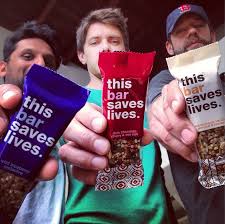Home
About Us
Page 2
The programs must also adhere to the principles of experiential learning and provide young people with the noble opportunity to engage in real-life learning opportunities in conjunction with the goals and objectives of the program.
|
|
In addition, the NIFA strongly encourages program proposals that focus on consumer needs for education and behavior change related to household, lawn, and garden practices that may adversely impact water resources in agricultural, rural, and urbanizing watersheds and related aquifers.
Projects that are specifically designed to advance consumer understanding of the ecological impact of water use in agricultural products or ecosystem services from agricultural production are also vehemently encouraged.
In order to support these initiatives, the National Institute of Food and Agriculture is set to administer funds in the amount of $4,000,000.
The institutions and organizations which will be assumed eligible to submit an application under the National Integrated Water Quality Program are the following:
a) Private and Public Non-profit entities
b) State and Local Governments
c) Indian Tribal Governments and Organizations
d) Faith-based Organizations
e) Community-based Organizations
f) Institutions of Higher Education
g) Private and Public Colleges and Universities
h) Independent School Districts
The United States Department of Agriculture, the mother agency funding this program, is the country's leading agency responsible for substantial anti-hunger efforts and the stewardship of national forest and rangelands through product safety and conservation efforts.
National Integrated Water Quality Program
Back to Page 1
About The Author Iola Bonggay is an editor of TopGovernmentGrants.com one the the most comprehensive Websites offering information on government grants and federal government programs. She also maintains Websites providing resources on environmental grants and grants for youth programs. |
Additional Resources
category - Civic Engagement Grants
National Institute of Food and Agriculture: Community Food Projects Competitive Grants Program
Disaster Relief Loans from GovLoans
9th Annual P3 Awards: A National Student Design Competition for Sustainability Focusing on People, Prosperity and the Planet
Fostering International Research on Women in Public Service
Follow @topgovtgrant
Social Entrepreneurship
Spotlight
A Bar That Saves Children’s Lives

Ryan Devlin, Todd Grinnell and Ravi Patel have traveled to Africa on a humanitarian trip a few years back, encountering children suffering from severe malnutrition get healthy through Plumpy’Nut®.
